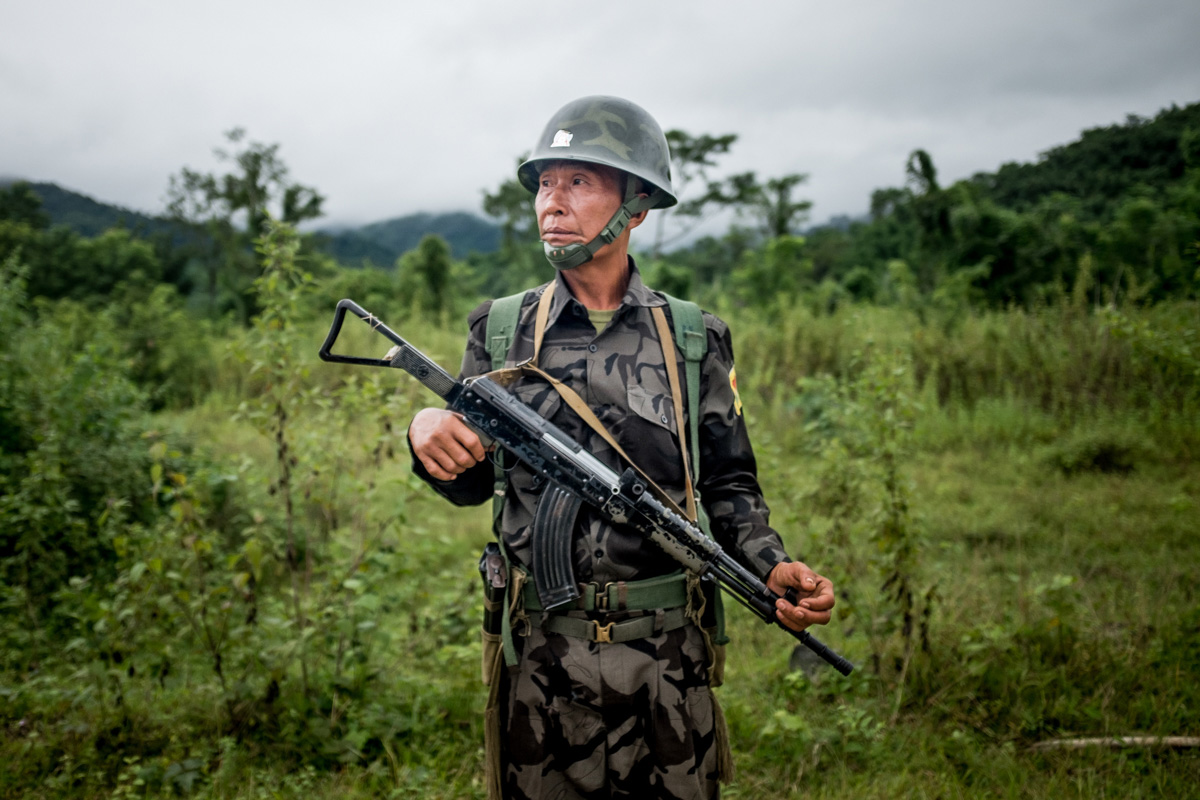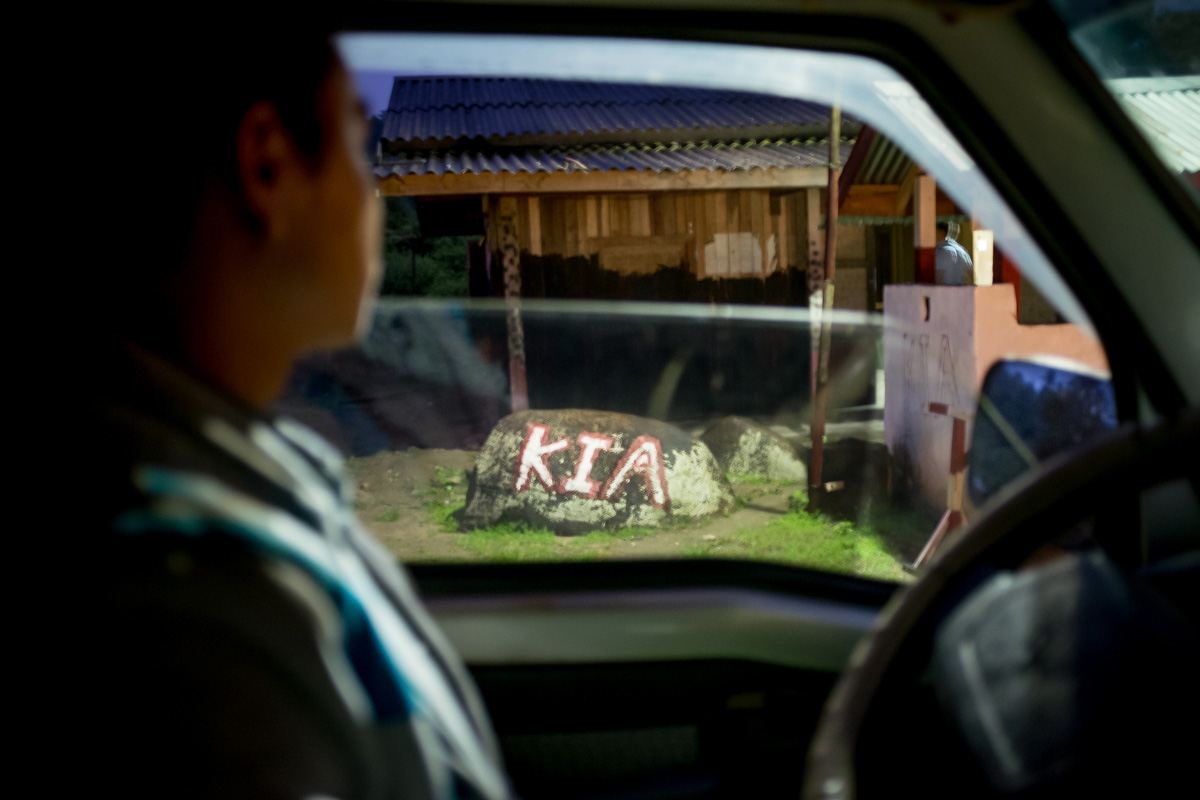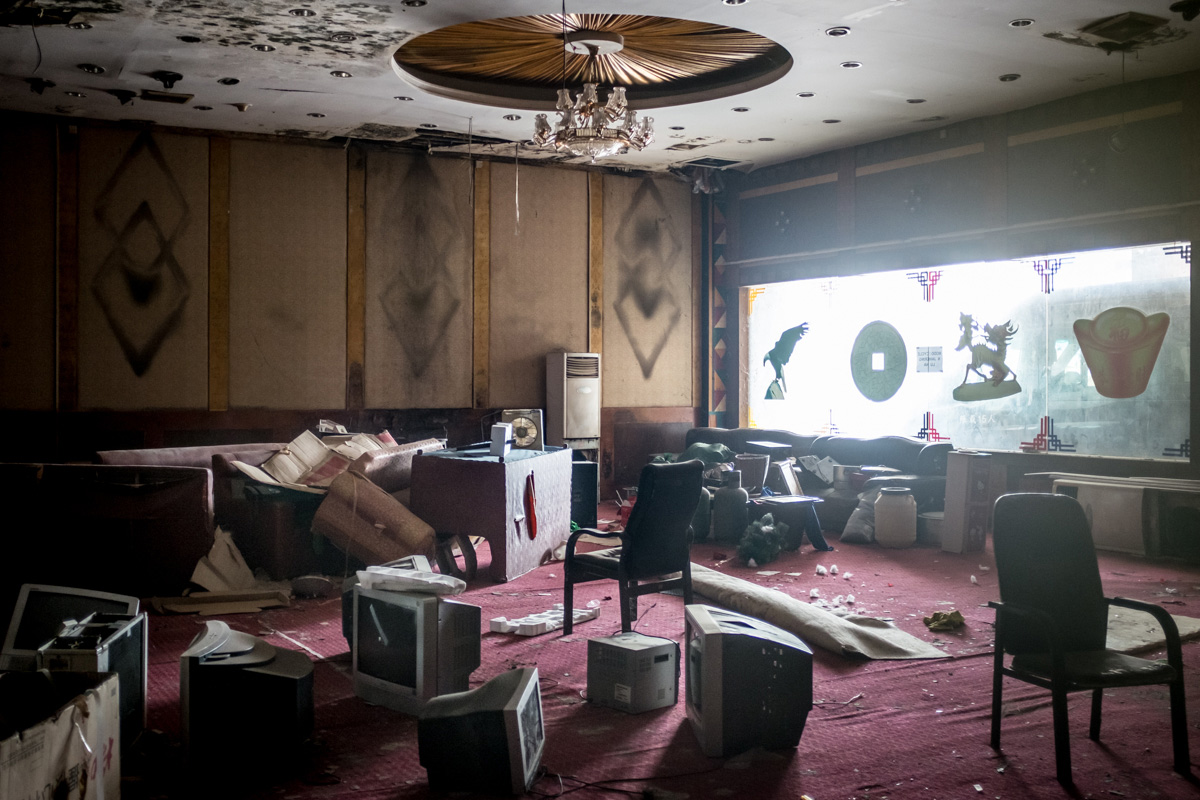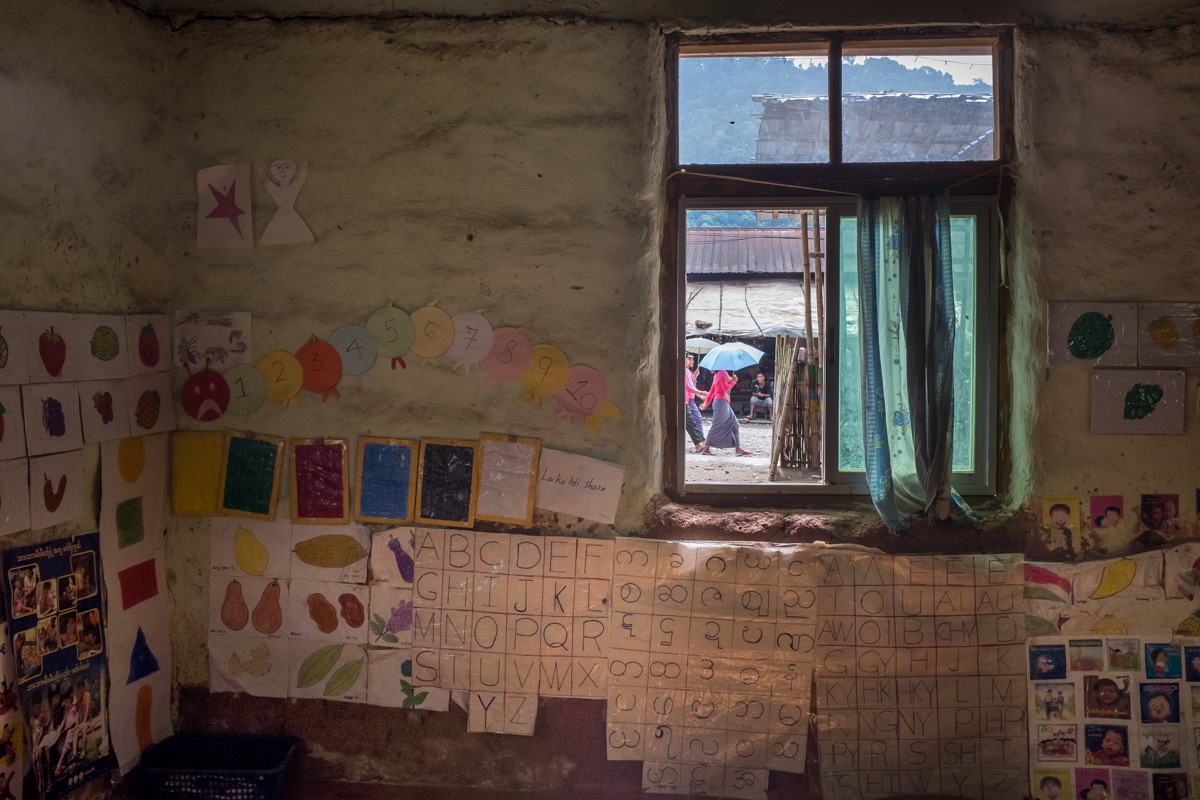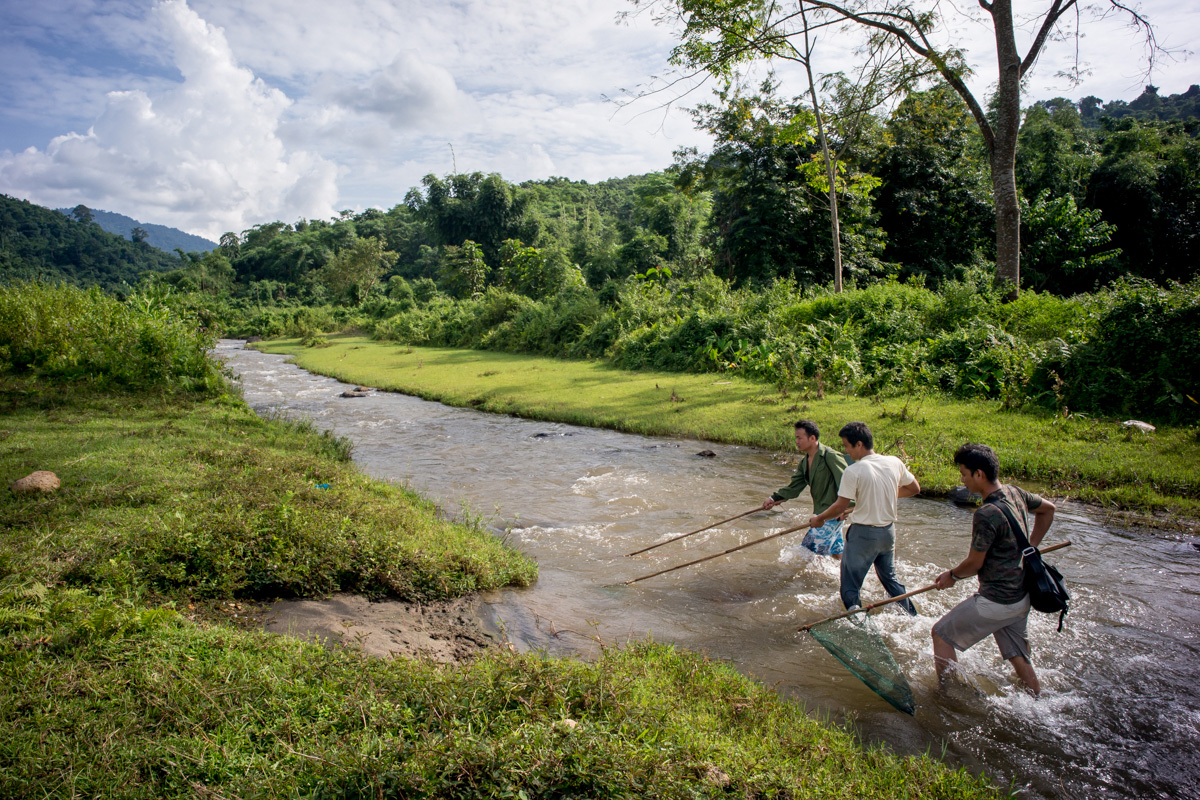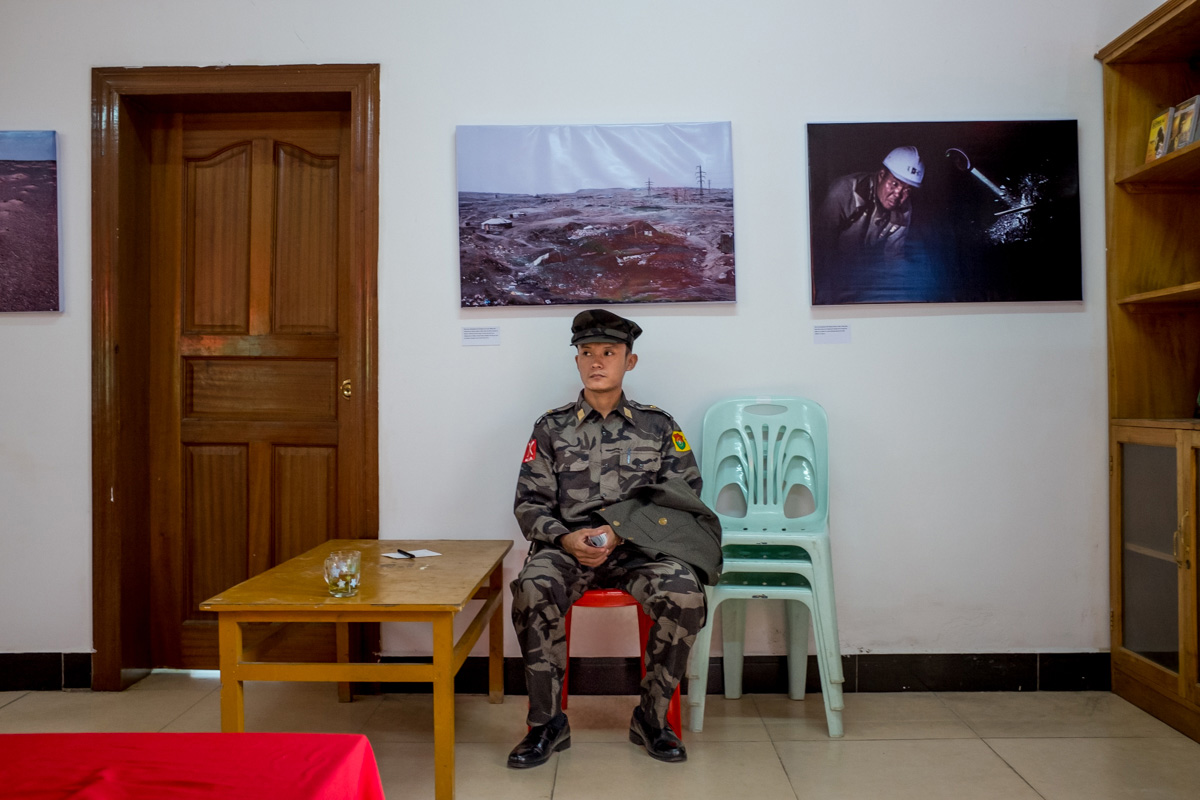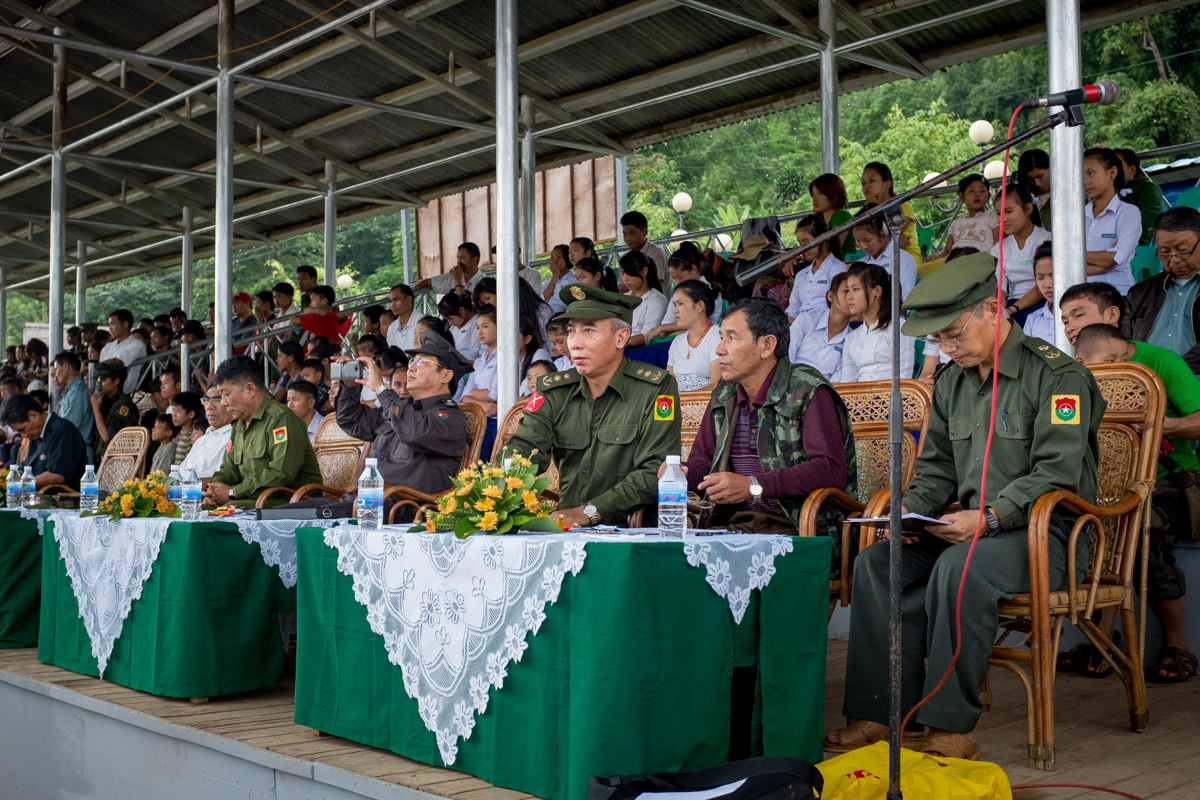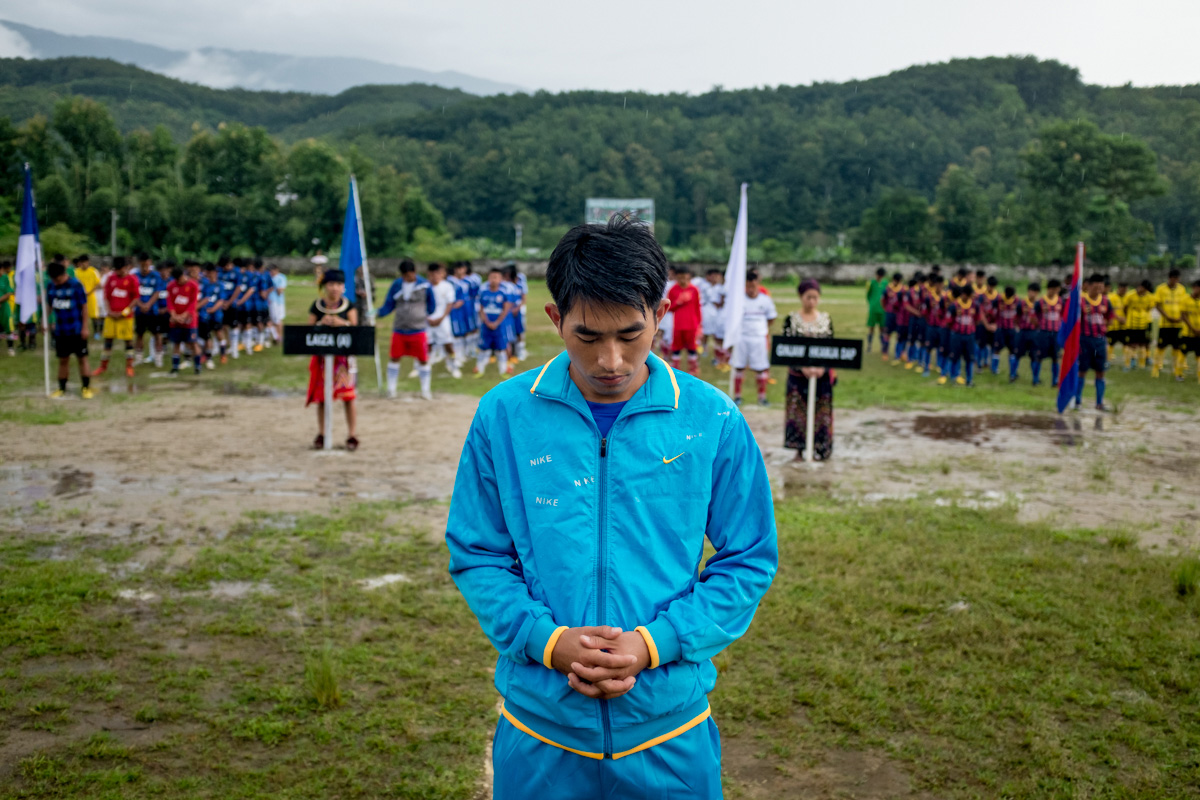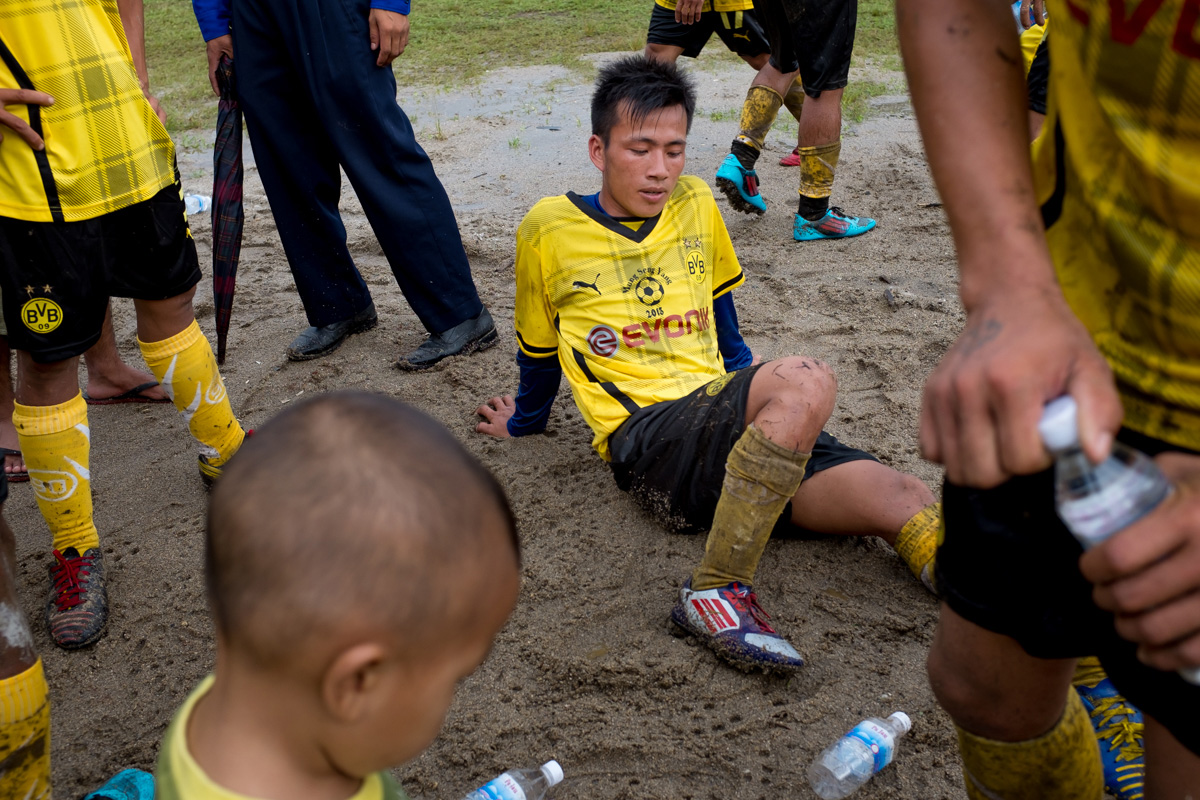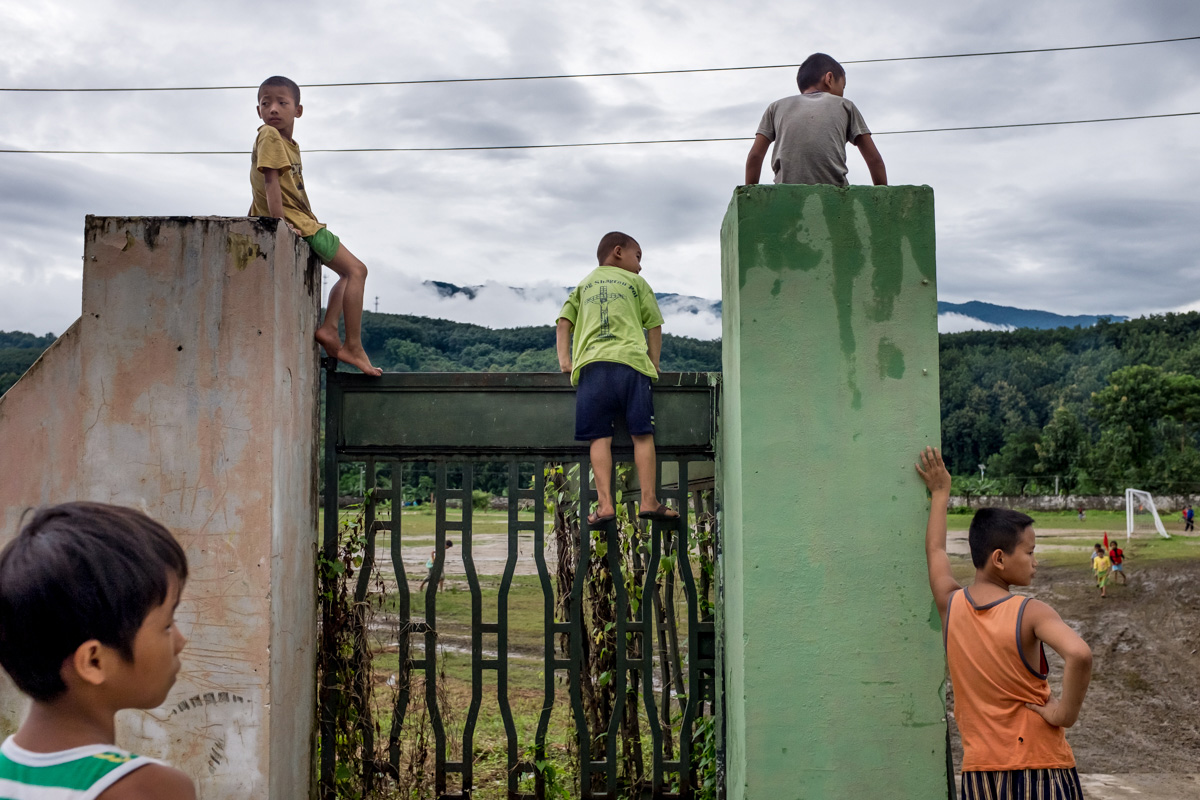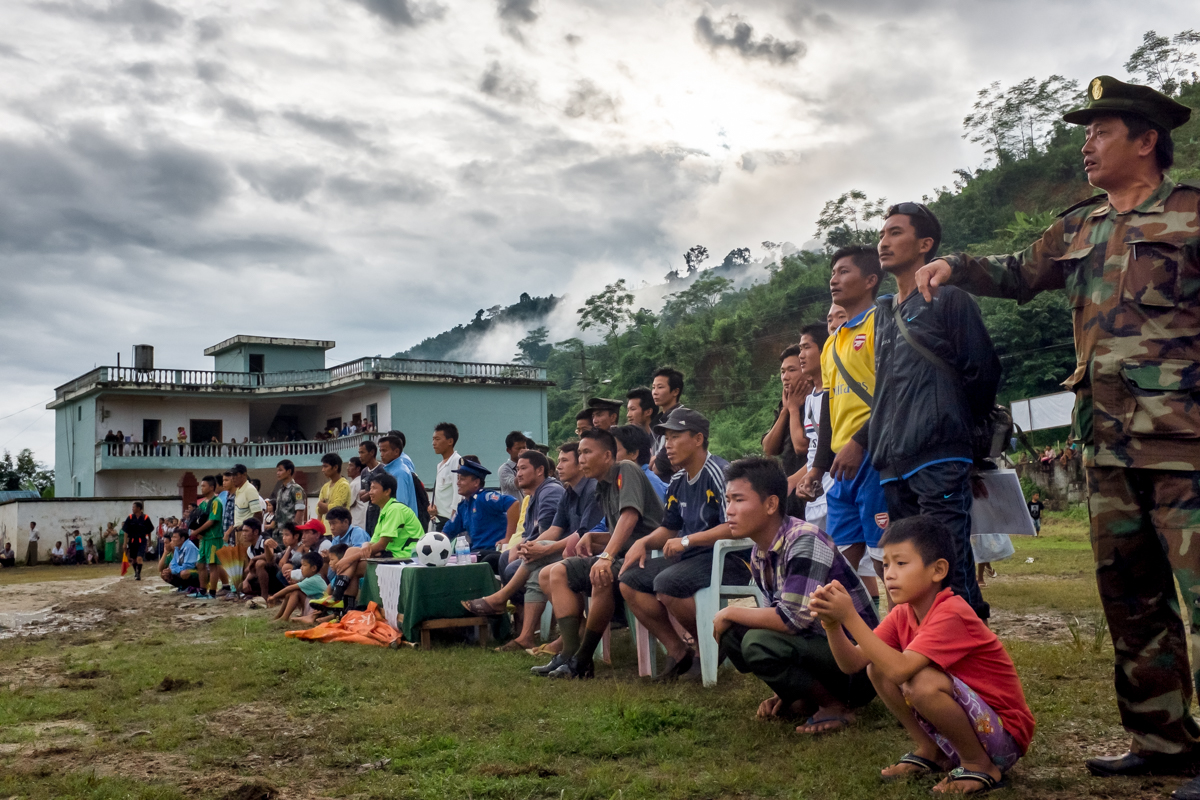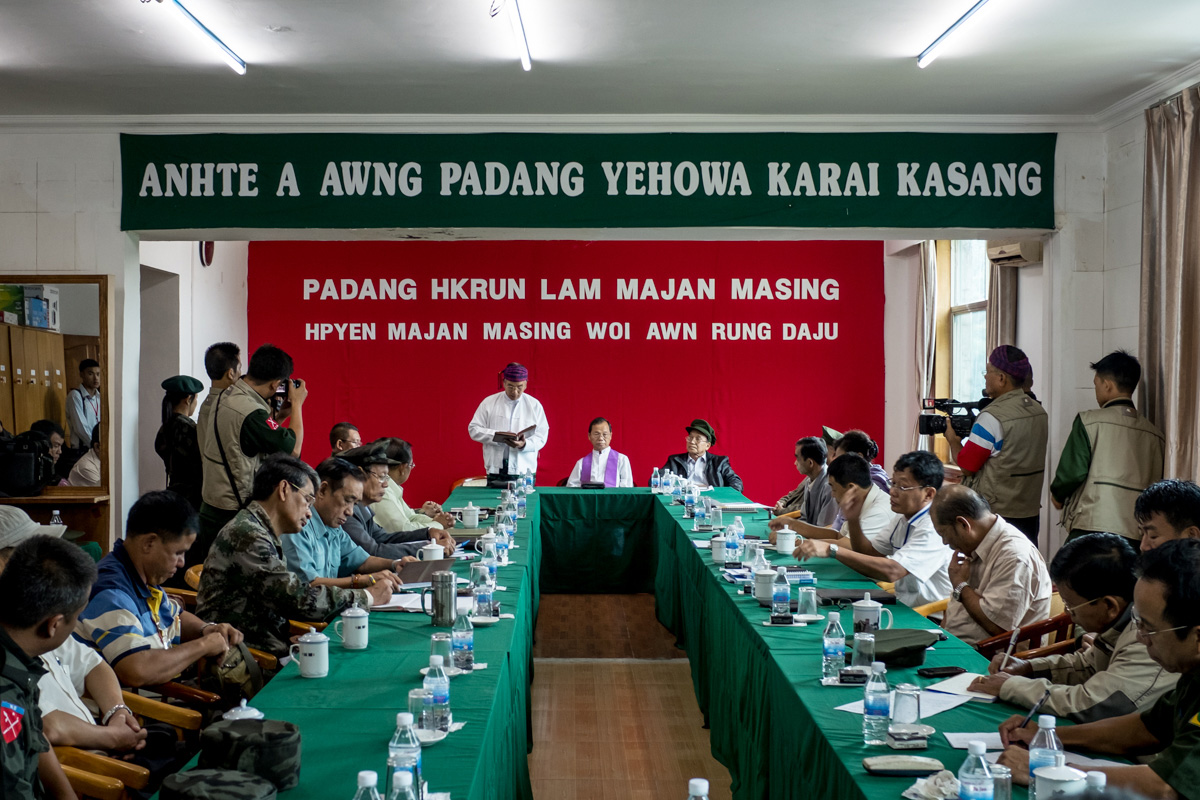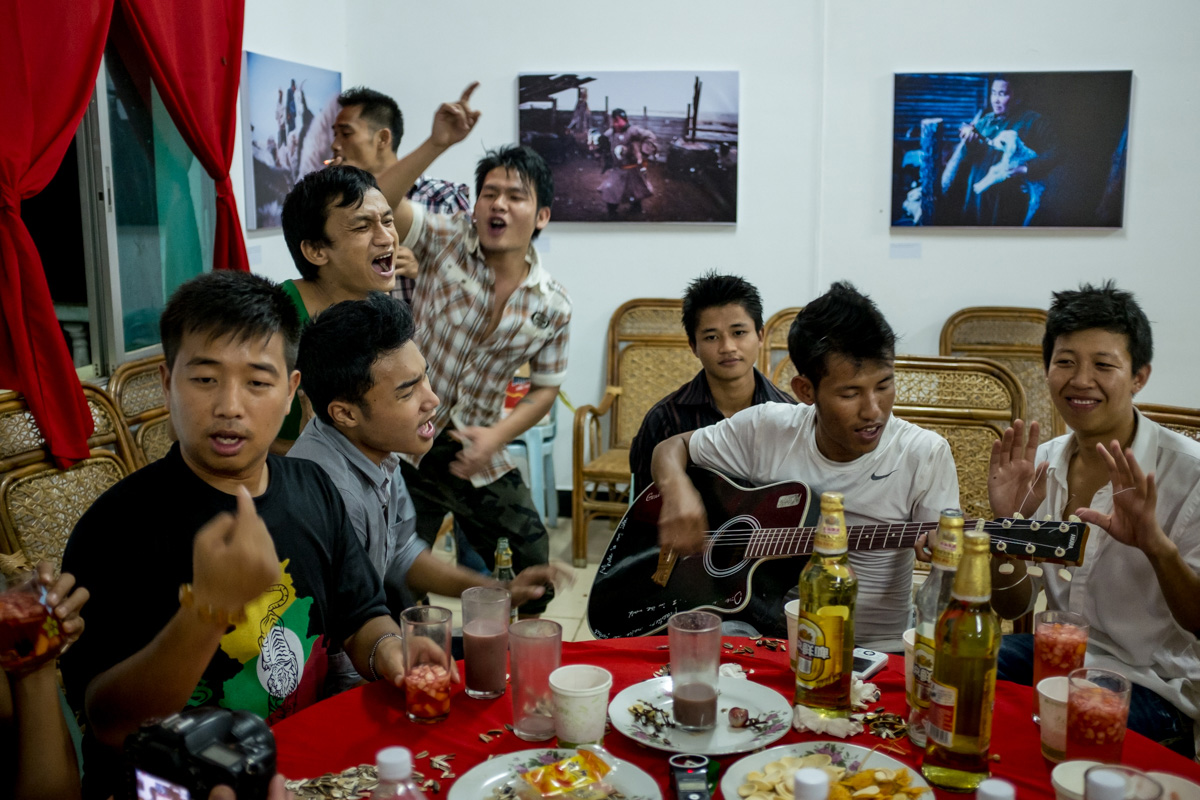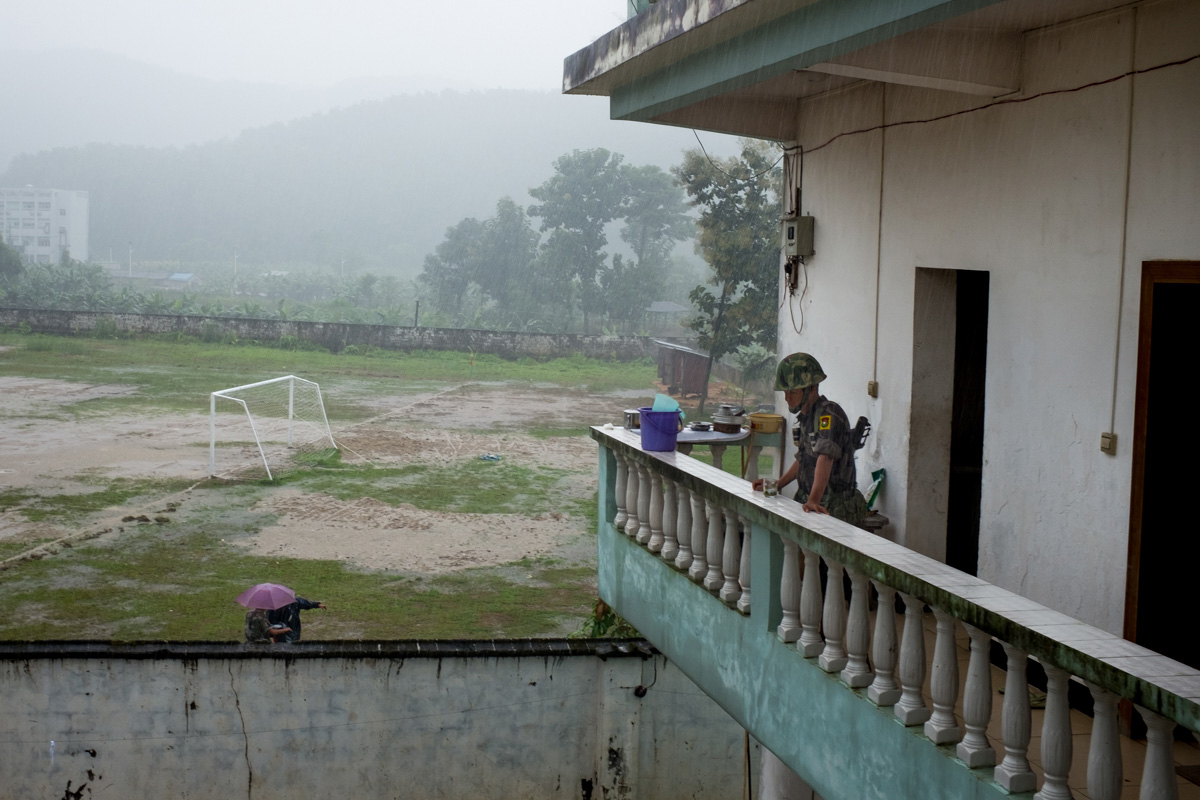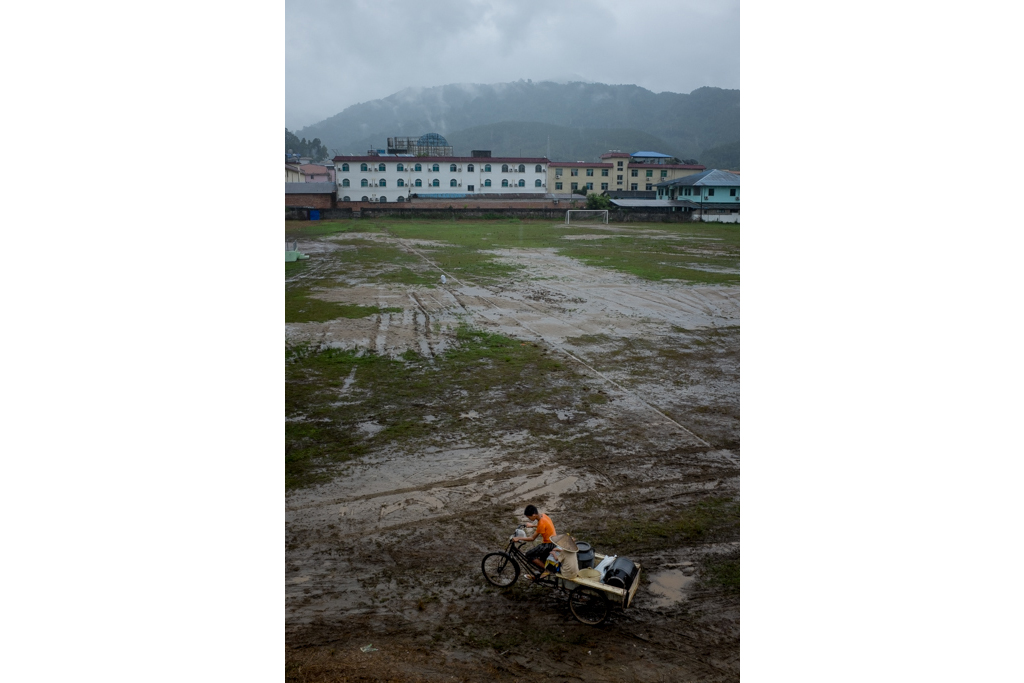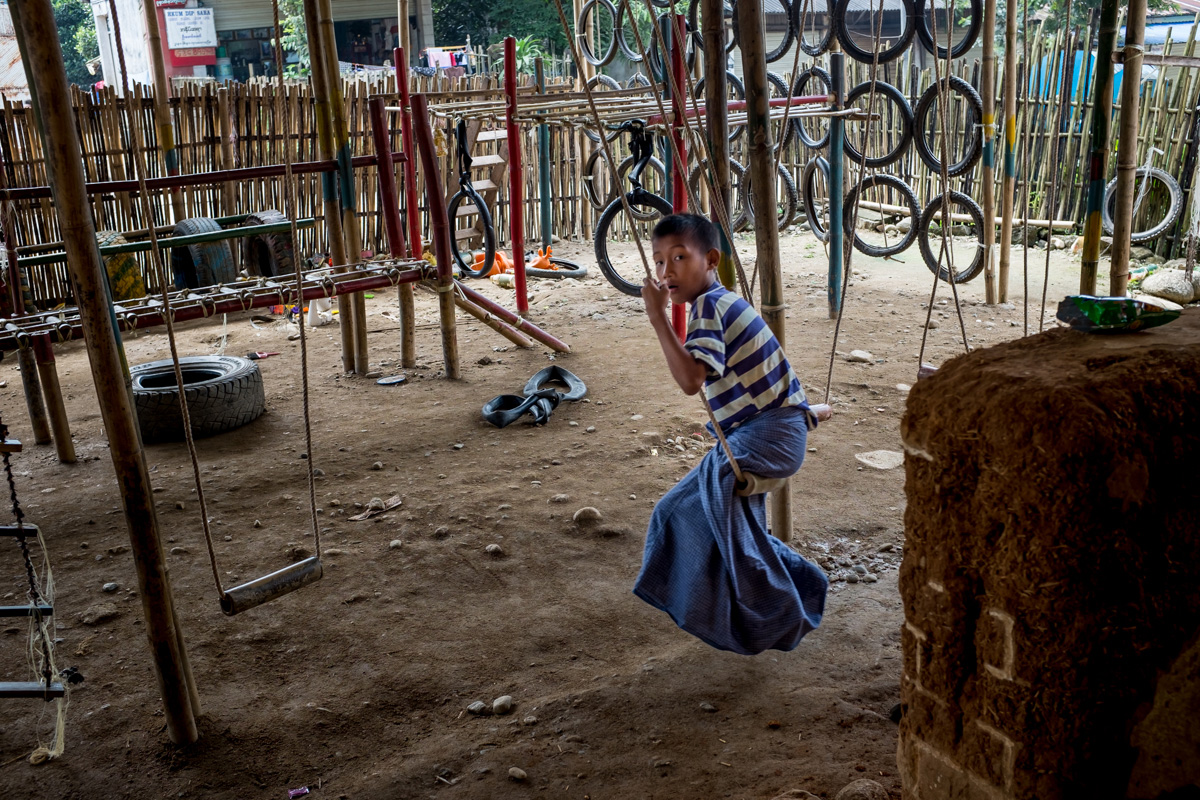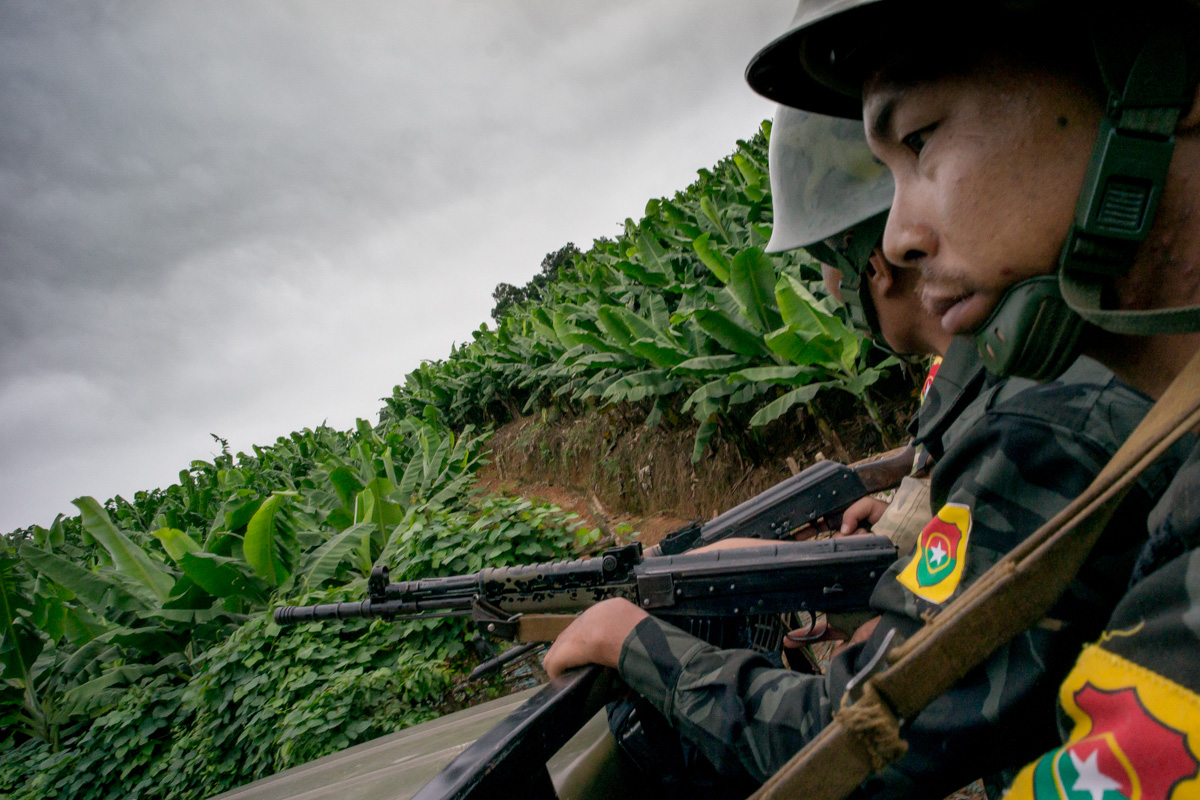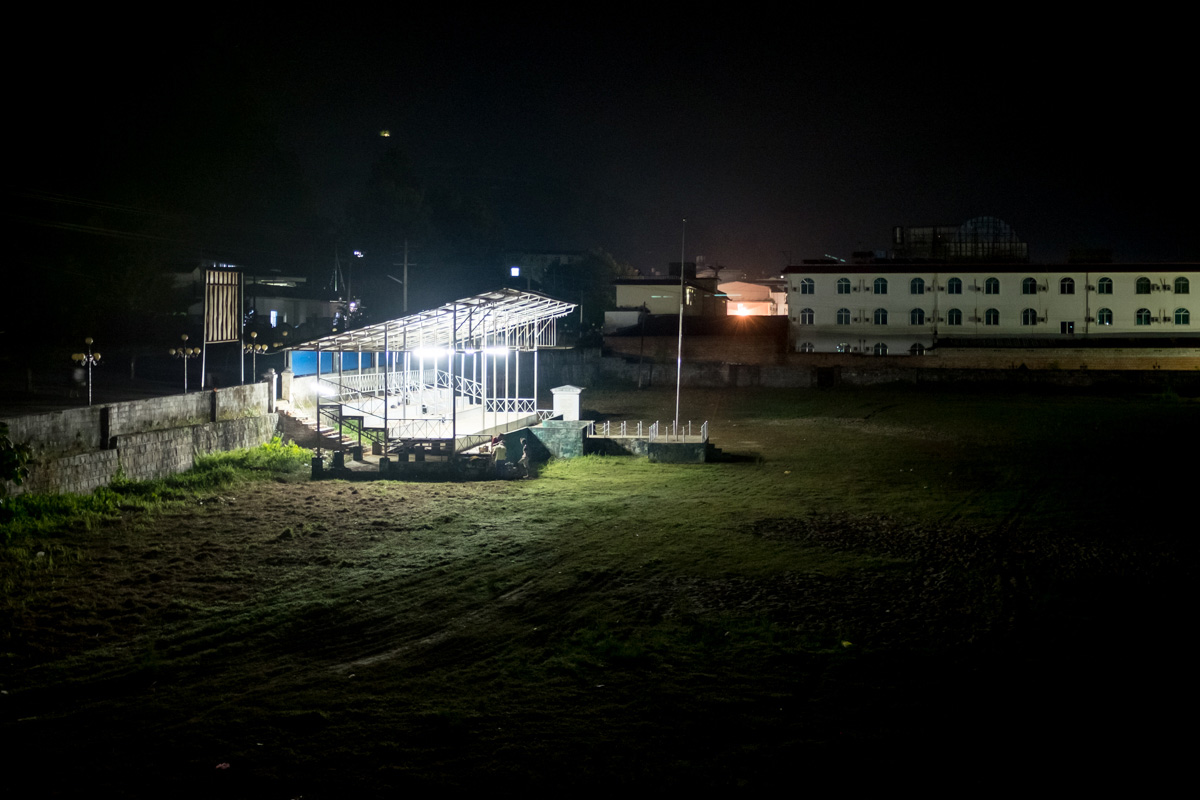After the breakdown of the 1994 ceasefire between the Burmese army and Kachin Independence Army (KIA) troops in June 2011, conflict engulfed Burma’s Kachin State, prolonging the civil war initiated upon the country’s independence in 1948.
Laiza, a modest border town near China’s Yunnan province, has become the headquarters for the Kachin rebels and their political arm, the Kachin Independence Organization (KIO). Now an administrative and commercial hub for rebel-held areas, the town is home to some 20,000 people. Yet, the ongoing clashes have displaced nearly two-thirds of them into four major camps on the outskirts, where chronic shortages of basic necessities persist.
Set against this backdrop, this photo essay explores the day-to-day realities of Laiza’s residents, civilians, soldiers, and members of the KIA and KIO, as they endure a protracted conflict and work to preserve their ethnic heritage.
Frontline Town 2013
A Kachin soldier waits as the convoy of KIO leaders passes by en route to peace talks between the KIO and the Burmese government in Myitkyina, Kachin State.
An unofficial border gate marks the boundary between Kachin State and China's Yunnan province.
Once a favored gambling spot for Chinese from Yunnan province, this hotel now serves as the headquarters of the KIO since the outbreak of fighting.
Soldiers fish using electric sticks in a river about a kilometer away from the frontline.
A soldier awaits the arrival of his General at the opening event of a new library.
Military officers gather for the opening ceremony of the annual Laiza football league.
Football players recite the athlete's oath and offer prayers at the commencement of the week-long Laiza football league.
KIO and KIA leaders hold an internal meeting before departing for Myitkyina, Kachin State, to participate in a two-day peace talk with the Myanmar government, under the observation of United Nations Secretary-General’s Special Adviser on Myanmar, Vijay Nambiar.
Kachin personnels enjoy a festive evening during their off-duty hours, away from patrol duties.
Boys gather leftovers from neighbors to feed his livestocks.
Soldiers patrol the muddy road, passing through banana fields belonging to Chinese businessmen.
The central stadium serves as a popular gathering spot for young Kachin men to socialize and enjoy drinks.
